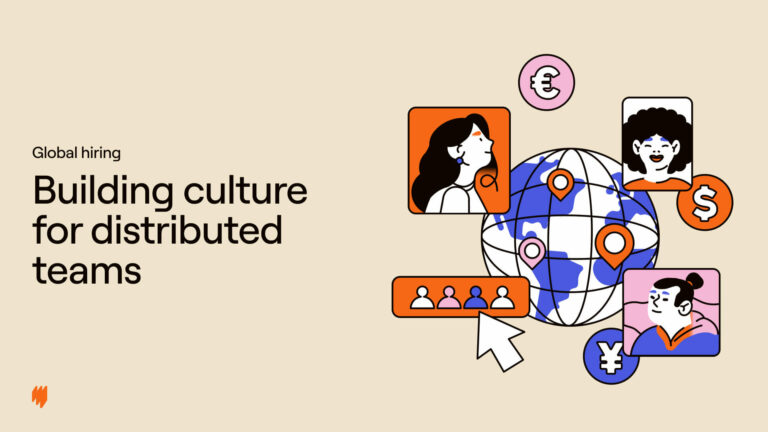Diversity, equity, and inclusion (DE&I) are no longer just buzzwords. A PwC global DE&I survey reveals that 75% of respondents consider diversity a top priority in their company.
Businesses large and small worldwide are driving diversity and inclusion to infuse innovation, employee engagement, and growth within their organizational structure. Research from Gartner indicates that teams with diverse members outperform their counterparts by 12% in overall performance. Moreover, companies that embrace diversity in their management report a 19% surge in revenue, clearly demonstrating the substantial financial benefits of fostering an inclusive workplace.
Diversity recognizes individual differences, while inclusion ensures everyone’s voice is valued. Together, they create a more engaged, innovative, and committed workforce. In response, more companies are appointing Chief Diversity Officers and adopting comprehensive D&I strategies.
And this isn’t the case only for employers. A CNBC survey reveals that nearly 80% of workers seek companies committed to D&I, showing its significance in attracting top talent.
The scenario isn’t any different for businesses with large, distributed workforces.
This article delves into the growing focus on D&I, exploring the benefits of diversity at work and practical ways businesses can leverage it to drive growth and success in competitive environments.
Steps to building an Inclusive Workplace Culture
An inclusive company culture boosts employee collaboration and engagement, driving organizational success. Here are six steps to build a diverse and inclusive workplace:
- Secure leadership buy-in
Inclusivity must start with leadership. Leaders should prioritize diversity, equity, and inclusion and undergo DEI training to understand its value in fostering business success. By championing inclusivity, executives create the foundation for a diverse equitable workplace. - Create safe and accessible spaces
Inclusive workplaces ensure all employees—including marginalized groups—feel safe and supported. This involves providing facilities such as unisex restrooms, accessible workspaces, ergonomic furniture, and assistive technologies for employees with disabilities. Remote workers should also be given access to digital tools, such as screen readers, to meet their specific needs. - Expand the company holiday calendar
Recognizing the value of diversity in the workplace by including holidays from various backgrounds enhances inclusivity. For instance, acknowledging a broad list of holidays strengthens employee respect and belonging. Flexible scheduling can also accommodate employees observing different holidays. - Establish employee resource groups (ERGs)
ERGs are voluntary, employee-led groups that foster inclusion based on shared identities, experiences, or interests. These groups offer employees a platform to connect, share insights, and advocate for their communities. ERGs also help promote cross-cultural engagement and support recruiting efforts aimed at diverse talent. - Encourage feedback and open dialogue
Continuous feedback helps leaders assess the effectiveness of inclusivity initiatives. Regular one-on-one meetings, employee surveys, and workshops provide insights into areas needing improvement. A transparent feedback system encourages open dialogue, while anonymous channels help employees voice concerns without fear of retaliation. - Recognize and reward diverse contributions
Employee recognition programs must equitably acknowledge the contributions of all employees, especially those from underrepresented groups. Regularly reviewing recognition practices ensures no disparities exist and that a broad range of employee achievements are celebrated. Equitable recognition fosters a sense of belonging.
Making diversity and inclusion in workplace a core business value
To embed D&I as core business values, organizations must adopt a comprehensive approach that involves various aspects of human resources (HR) and leadership support.
HR’s role in driving diversity
HR plays a crucial role in D&I initiatives, leading efforts to create an inclusive workplace. This includes setting clear goals and metrics to measure progress. HR professionals should regularly assess the workforce to identify gaps in representation and develop targeted recruitment strategies to attract diverse talent. Additionally, HR can organize training programs that raise awareness about unconscious bias and promote an inclusive culture.
HR policies and practices that support diversity and inclusion
To sustain D&I efforts, implementing strong HR policies is crucial, particularly when addressing workforce diversity in human resource management. Organizations can adopt inclusive hiring practices, such as blind resume reviews and diverse interview panels, to minimize bias.
Furthermore, performance management systems should include diversity metrics, and reward teams that demonstrate inclusive behaviors. ERGs and mentorship programs can provide support networks for underrepresented employees, enhancing their professional development and engagement.
The importance of leadership support in D&I initiatives
Leadership commitment is crucial for the success of D&I initiatives. Leaders must not only support these values but also exemplify inclusive behavior. This involves conveying the significance of D&I to the entire organization and integrating it into the company’s vision and mission.
Regularly reporting on D&I progress and holding leadership accountable for outcomes fosters a culture of transparency and trust. Ultimately, when leaders prioritize diversity and inclusion, it sends a powerful message that these values are fundamental to the organization’s identity and success.
By aligning HR strategies with strong leadership support, businesses can effectively make diversity and inclusion core values, driving innovation and improving overall performance
Benefits of cultural diversity in the workplace
Cultural diversity in the workplace offers tangible advantages that positively impact both organizational performance and employee satisfaction. Here are five key benefits.
- Greater creativity and innovation
A diverse workforce brings together employees from various cultural backgrounds with unique experiences, perspectives, and problem-solving approaches. This variety fosters creativity, as employees are more likely to generate new ideas and innovative solutions. - Improved decision-making
With different viewpoints represented, decision-making processes become more comprehensive and effective. Employees from diverse cultural backgrounds can provide fresh insights and approaches to challenges, leading to well-rounded solutions. Studies show that companies with culturally diverse teams make better decisions faster, ultimately improving business outcomes. - Broader skill sets
Cultural diversity introduces a wider range of skills and expertise. Employees from different cultures bring unique knowledge and competencies that enhance problem-solving and contribute to business growth. This rich skillset enables companies to tackle complex issues more efficiently, increasing their ability to innovate and adapt in a global market. - Better employee engagement and retention
An inclusive work environment that values cultural differences makes employees feel respected and valued. This sense of belonging enhances job satisfaction and retention. Employees in culturally diverse organizations are more likely to stay longer and contribute positively to the company, reducing turnover and improving overall workplace morale. - Stronger business reputation
A company that embraces cultural diversity is perceived as socially responsible and forward-thinking. It builds a positive reputation with clients, investors, and the broader community. This not only helps in attracting top talent but also strengthens relationships with stakeholders who value diversity and inclusion.
Practical Tips for strengthening Diversity and Inclusion in your Workplace
As an HR leader, how can you instill a deep sense of D&I thinking in the workplace? Here are key diversity and inclusion tips that help you foster an inclusive workforce.
- Assess company culture
Start by collecting data from your HR team to evaluate the current state of diversity and inclusion within your organization. This assessment fosters accountability and helps align your diversity initiatives with actual workplace dynamics. - Review existing policies
While verbal support from leadership is essential, formalizing diversity and inclusion policies is crucial for effective implementation. Regularly assess these policies to ensure they create a safe and valued environment for all employees. - Analyze hiring procedures
Be aware of biases in recruitment tools and processes. Train HR personnel on unconscious and affinity biases to promote impartial hiring based on skills and experiences rather than personal preconceptions. - Enhance communication
Establish open communication channels where employees can voice their concerns anonymously. Taking corrective actions based on feedback demonstrates a commitment to employee well-being and fosters a culture of respect. - Encourage diversity in leadership
Actively promote diversity in leadership roles to ensure varied perspectives at decision-making levels. This not only enhances innovation but also reflects a commitment to an inclusive workplace culture. Engage diverse candidates in leadership development programs to pave the way for future leaders.
The future of diversity and inclusion in the workplace
The future of diversity and inclusion (D&I) in the workplace is being shaped by emerging trends such as equity, belonging, and intersectionality. Companies with inclusive cultures are eight times more likely to achieve better business outcomes.
Equity remains a core focus, with organizations implementing fair pay initiatives and equitable advancement opportunities. According to a report, women earn only 83% of what men earn. This emphasizes the need for ongoing efforts to close this gap.
Belonging is also gaining traction. 56% of employees report feeling a sense of belonging at work when they feel respected. More than 80% of companies have taken action of DEI initiatives with the help of councils or committees to oversee these initiatives.
Intersectionality is crucial, recognizing that individuals experience multiple, overlapping identities. Research shows that 24% of Black and Hispanic employees faced discrimination, highlighting the importance of addressing unique experiences in D&I strategies.
Multiplier: Simplifying global workforce diversity
As workplaces evolve and distributed teams become common, companies need to prioritize ethical and socially responsible practices by becoming more people centric. For businesses expanding internationally, developing inclusive workplace policies is crucial.
Multiplier offers a robust global employment platform that simplifies the onboarding and management of international teams.
Partnering with a global employment platform like Multiplier simplifies global hiring by providing a cost-effective and compliant solution for businesses expanding beyond borders. With Multiplier, you can streamline onboarding, payroll, and tax management and take care of legal complexities while getting end-to-end compliance and local HR support. With a user-friendly platform, businesses can onboard employees quickly, manage teams efficiently, and provide tailored benefits, ensuring smooth, secure international workforce management.
To learn more about enhancing your workforce management strategy, explore Multiplier’s workforce management solutions.
Book a demo with Multiplier’s experts today.
FAQ
- How can HR promote diversity and inclusion?
HR can enhance diversity and inclusion by instituting equitable hiring practices, conducting comprehensive diversity training, establishing employee resource groups, and cultivating a workplace culture that values and celebrates diversity in all its forms. - What are some examples of diversity in the workplace?
Diversity in the workplace encompasses a variety of differences among employees, including race, gender, age, ethnicity, sexual orientation, disabilities, educational backgrounds, and cultural beliefs. - What are some tips for promoting diversity and inclusion at work?
Effective strategies for promoting diversity and inclusion in the workplace include offering unconscious bias training, promoting diverse individuals into leadership roles, encouraging transparent communication, implementing inclusive and fair policies, and providing equal opportunities for career advancement. - How can organizations measure the effectiveness of their diversity and inclusion initiatives?
Organizations can measure the impact of their diversity and inclusion endeavours by monitoring diversity metrics, employee satisfaction, participation in diversity programs, and retention rates of diverse staff. These measures help ensure that the initiatives deliver concrete results. - What role do senior leaders play in advancing diversity and inclusion?
Senior leaders are crucial in advancing diversity and inclusion by actively supporting diversity initiatives, setting clear diversity goals, actively participating in diversity training, and holding their teams accountable for creating inclusive environments. Their commitment can drive significant change throughout the organization.

Will Smith
Content Writer
Will is a Content Writer at Multiplier. With a background in technology journalism, he is passionate about busting jargon, getting to the heart of complex topics, and writing pieces you'll enjoy reading.





